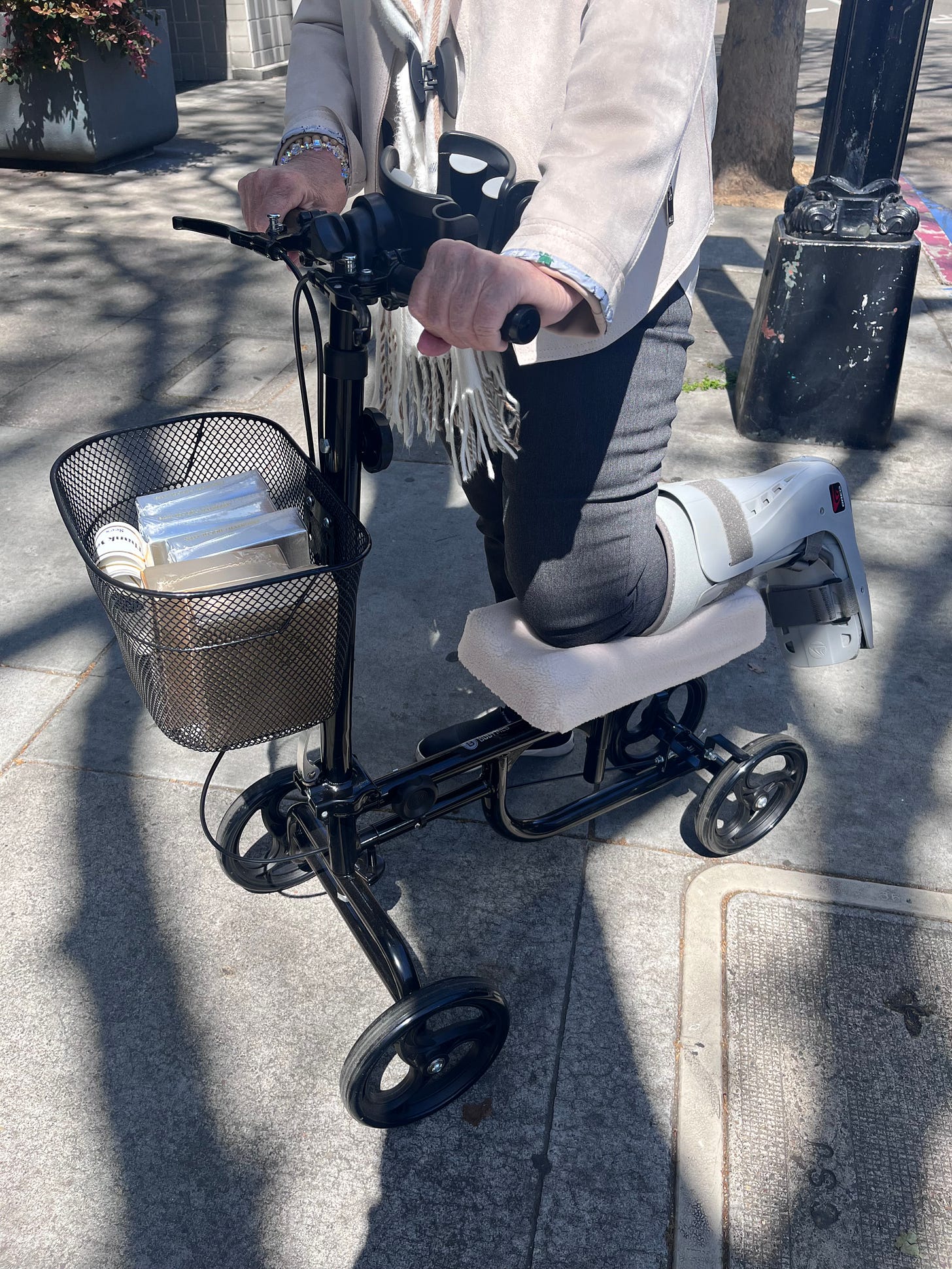Last week my mother broke her foot. As she put it to me, she had set out on her first neighborhood walk of the spring season. The weather was nice, sunny and warm, birds chirping. Next she knew she was down on the ground. She had stepped into a deep hole in the sidewalk only steps from her apartment.
Not wanting to pay for an ambulance ride, she solicited the help of some local firemen who got her home. She made a doctor’s appointment for the next day so she didn’t have to go into the ER. She was given X-rays and a boot. Only a few months ago, she had a bigger scare that left her without a driver’s license for long enough that she and her two daughters began to contemplate how all our lives would shift if she required more care. This time, she was struck with fear and sadness about the prospect of being home-bound again for weeks, or more. She immediately ordered herself a knee scooter.

My mother is approaching an age I won’t share (she lurks this newsletter and would be horrified!). Let’s just say that while she would rather ignore that aging happens, and that we all eventually need to be cared for in abject—or tender, depending on your perspective—ways as we age, it is happening to her, and therefore to us, her two daughters, her larger family, slowly but surely.
Last weekend, with her new knee scooter in tow, my mother attended my kids’ sports games, determined not to fall into a lonely rut at home. She works hard to be a fun and active grandmother, and the kids were thrilled about the new mode of transport we all had to figure out together. They were even more excited to help their grandmother. My daughter, who will be eight next month, was particularly supportive, offering an arm to her “mimi” as she hobbled to and from the scooter; offering to fold and load the mobility cart into the car.
I wasn’t prepared for all the feelings the sight of my daughter helping my mother would bring up— the deep awareness of the grief and loss that will inevitably become part of my daughter’s life, and my own; my unease about what the final years will look like, and whether I can handle caring for an aging parent; my more pragmatic economic uncertainties, which hum under the emotional apprehension about inevitably losing my mother, who has always been there.
How will we care for my mother as she ages? It’s a question I think about all the time—one that feels like both a distraction from more urgent matters, and like the most urgent matter of all. I don’t really have any verifiable income right now, as a freelancer. Like most millennials, my husband and I don’t have retirement plans or 401ks or financial futures that are at all clear. I am also deeply troubled, at the moment, by my financial reliance on my husband, which has allowed me to write and move a book into the world. But he’s a teacher. We’re not rolling around in assets (the only car we own outright is a fire hazard). And my increasing financial dependence has also brought new questions and troubles into our relationship and my identity, marking both with questions about freedom and stuckness.



